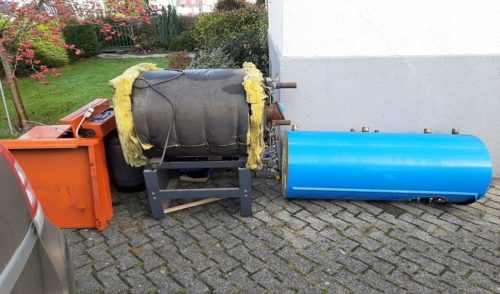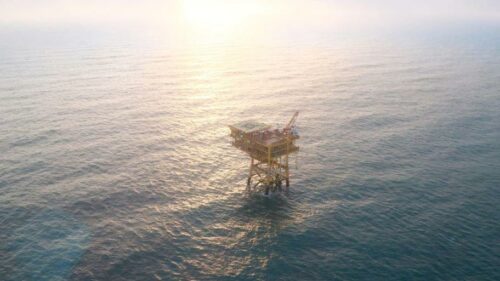Climate protection yes, but only with proper work
- Study sheds light on acceptance among employees for the climate-neutral conversion of the industrial location
- Climate and employment goals must be considered together
Bertolt Brecht preferred to be bold when he wanted to exaggerate contradictions: "First comes the eating, then comes morality! Do people today feel the same way as they did in 1929 in the Threepenny Opera? Here the correct climate-conscious action, there the worries about one’s own job? How far does the willingness of employees to adapt their lives and work to climate protection go? For example, are they prepared to accept a loss of pay and a change of residence in order to support the climate-neutral restructuring of the economy? And what does the willingness to make personal changes depend on? A study by the Wittenberg Center for Global Ethics (WZGE) and the E.ON Foundation explores these questions, which will be presented today in Berlin as part of a high-profile panel discussion. Yasmin Fahimi (DGB), Prof. Ronald Bachmann (RWI), Dr. Wolfgang Gründinger (Enpal), Lars Katzmarek (Pro Lausitz e.V.), Martina van Hettinga (i-potentials) and Claus-Christian Gleimann (E.ON) will discuss the results of the study. Enclosed is a joint press release from the Wittenberg Centre for Global Ethics (WZGE) and the E.ON Foundation with the main contents of the study.
With its results, the study aims to work out starting points for a transformation strategy that takes a joint look at climate and employment goals and thus creates trust on the way to a climate-neutral industrial location for Germany. The study is based on a representative survey of over 2000 employees by infas quo.
In principle, climate-neutral conversion is accepted
The fundamental acceptance for the climate-neutral restructuring of Germany as an industrial location is highly pronounced. Almost two-thirds (59%) of the employees demand more speed on the way to climate neutrality, about half (49%) additionally show a high willingness to make an active contribution to this structural change. Only 14% prefer a slower pace, 16% have a low willingness to change.
Social status is crucial
How important employees find climate protection compared to other issues depends on their social status. In the group of employees who place themselves at the bottom of the social ladder, 28% place the issue of "climate protection goals" in last place, while 30% see the issue of "reducing social inequality" as the most important problem. The more negatively employees assess their own future employment situation, the more they prefer job security to climate protection – and vice versa.
Fear of the income gap
43% of those surveyed fear that the income gap will widen as a result of the climate-neutral transformation of industry, 19% do not expect this. Just under half (46%) expect the transformation to make it harder to find a job, especially for people with low qualifications. Among employees with a very high status, a good half (52%) expect a positive development for themselves, while among employees with a low status, only 30% of people see opportunities for themselves, while 21% expect rather negative consequences.
Rejection of income loss and mobility burden
A look at the concrete demands of change reveals a differentiated picture: a majority of 62% of employees are basically willing to acquire new qualifications, only 15% are not willing to do so, 31% would be willing to accept a new job that enjoys less social prestige, 37% reject this. The results are clearer with regard to the imposition of mobility and financial cuts: Only 20% would move to a more distant place of residence for a job, 57% reject this. Employees are least likely to accept income cuts: Here, only 15% signal a willingness to make cuts, for 62% this is out of the question.
Offer flexible employment models, make transformation fair
What do employees expect from companies in the climate-neutral transformation of industry? 26% consider it particularly important that companies enable flexible employment models. For 22%, the fair treatment of employees in the transformation is particularly important.
One’s own employment prospects are decisive
One’s own employment situation proves to be a central acceptance factor. It decides decisively whether an employee supports a rapid climate-neutral transformation of Germany as an industrial location or not. 94% of the people who see very positive effects of climate-neutral transformation for themselves as employees want a faster transformation. Among employees who expect very negative effects for themselves, this figure drops to 17%. 70% from this group, on the other hand, are in favour of a slower pace on the path to climate neutrality.
Dr Martin von Broock, Chairman of the Board of the Wittenberg Center for Global Ethics (WZGE): "People want rapid industrial transformation, and they are willing to change. But only as long as it is fair: efforts must be worthwhile for all social groups. So we need less moral appeals and more concrete offers."
Dr Stephan Muschick, Managing Director of the E.ON Foundation: "Good work remains important for employees even in times of the fight against climate change. Whether the economy succeeds in transforming itself towards climate neutrality will depend above all on employees having meaningful, but also adequately remunerated and secure work.
The short summary report on the study will be available on 2 March from 17.00h on www.wzge.de.
E.ON SE
E.ON-Platz 1
40479 Düsseldorf
Telefon: +49 (201) 18400
Telefax: +49 (211) 4579515
http://www.eon.com/
Wittenberg-Zentrum für Globale Ethik e.V.
Telefon: +49 (3491) 5079-114
E-Mail: michael.walter@wcge.org
Telefon: +49 (151) 16310-889
E-Mail: christian.drepper@presse.eon.com
![]()




